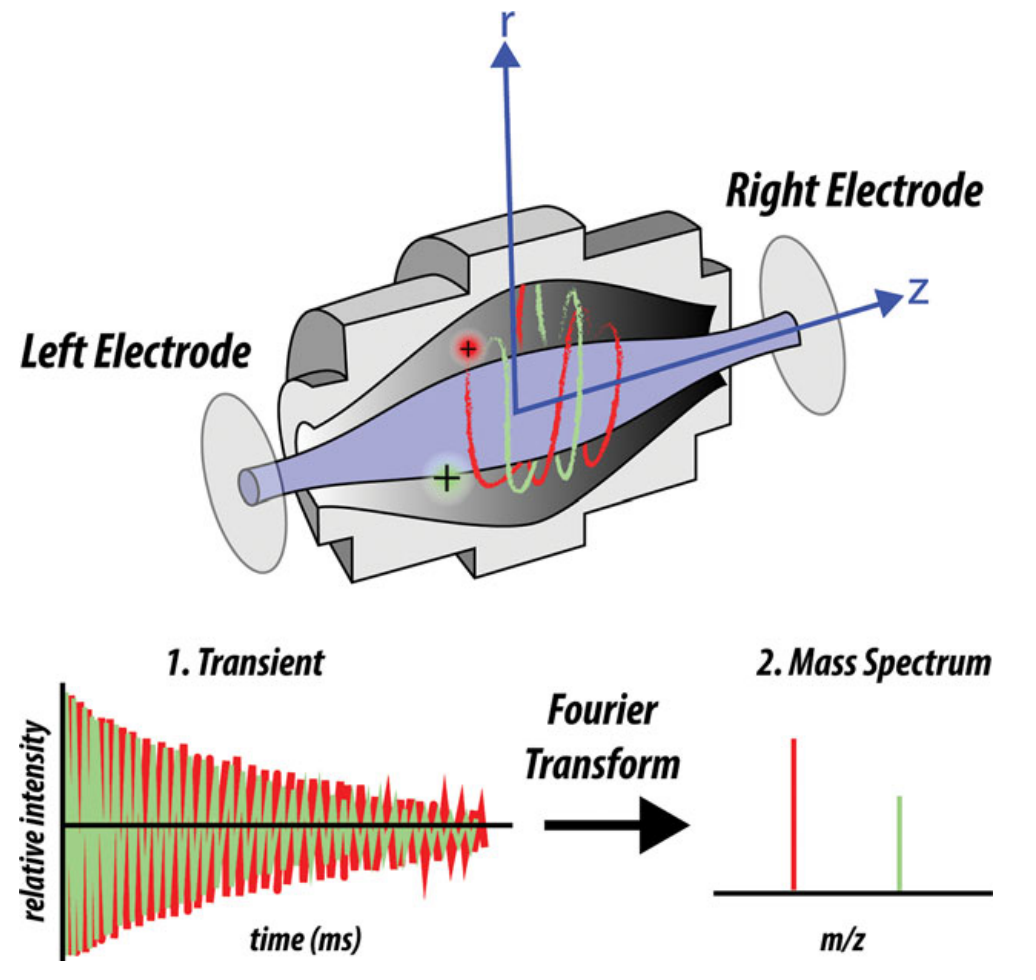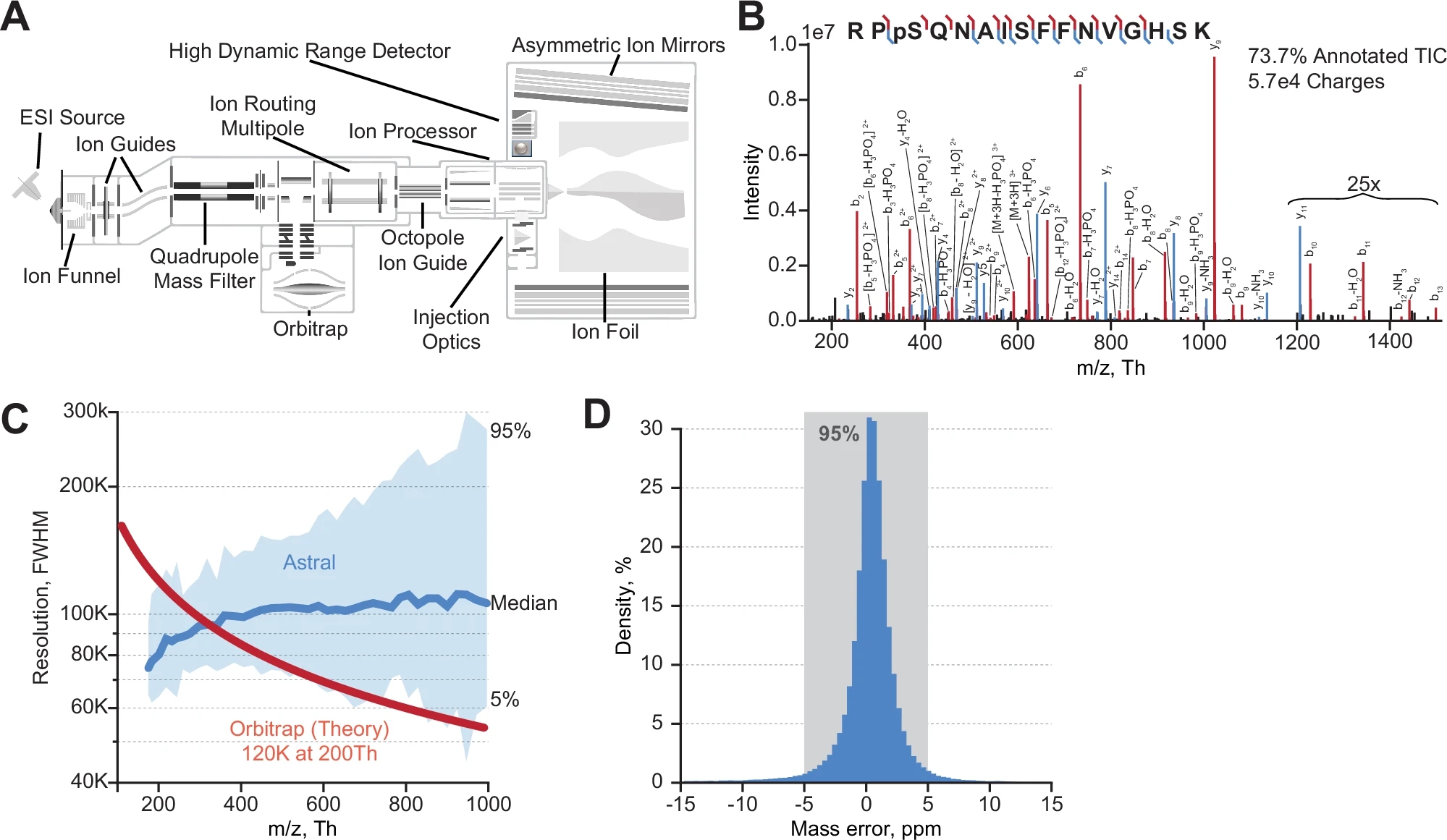High-Resolution Orbitrap Full-Scan Identification Service
High-Resolution Orbitrap Full-Scan Identification Service integrates ultra-sensitive detection with advanced data analysis algorithms, enabling precise analysis of low-abundance proteins in complex biological samples. Leveraging the superior resolution and mass accuracy of Orbitrap mass spectrometry over conventional techniques, High-Resolution Orbitrap Full-Scan Identification Service efficiently captures detailed information on post-translational modifications (PTMs), including phosphorylation, providing essential technical support for the study of protein functional regulation and disease-related pathways.
MtoZ Biolabs offers precise and efficient High-Resolution Orbitrap Full-Scan Identification Service that utilizes advanced Orbitrap mass spectrometry platform and a highly experienced analytical team. This service helps researchers gain deeper insights into protein structures, functions, and post-translational modifications, with particular applications in understanding protein functional regulation and elucidating disease mechanisms.
Technical Principles
The core of the High-Resolution Orbitrap Full-Scan Identification Technology lies in the precise integration of the unique Orbitrap mass analyzer structure with its ion motion properties, offering atomic-level resolution for phosphorylation modification research. The Orbitrap analyzer consists of a spindle-shaped central electrode and symmetric outer semi-electrodes, forming an electrostatic field that allows ions to oscillate freely. Ions move along a spiral path under the central electrode's electrostatic attraction, akin to a tightly wound coil around the spindle. Only the axial oscillation frequency is used for mass analysis, and this physical feature guarantees ultra-high resolution and mass precision.
By performing real-time Fourier Transform to analyze ion oscillation frequencies, the system converts time-domain signals into high-resolution mass spectra, ensuring the accurate capture of each ion's mass information. In full-scan mode, all parent ion information is collected unbiasedly, with a dynamic exclusion strategy minimizing data redundancy. This design supports the broad detection of phosphorylation peptides in complex samples and ensures the complete capture of low-abundance modification sites through multi-stage mass spectrometry triggering mechanisms.

John, P. S. et al. Proteomics. 2016.
Figure 1. Principles of Orbitrap Mass Spectrometry
While the high-resolution mode moderately impacts acquisition speed, Orbitrap technology optimizes electrostatic field stability and signal processing algorithms, maintaining sub-ppm level mass precision and efficiently distinguishing neutral loss features in phosphorylation, isomers, and neighboring sites (such as Ser/Thr). This makes it an ideal platform for post-translational modification studies, particularly for dynamic phosphorylation network analysis.
Analysis Workflow
MtoZ Biolabs' High-Resolution Orbitrap Full-Scan Identification Service offers comprehensive support from sample collection to final data interpretation, including the following key steps:

Service Advantages
By choosing MtoZ Biolabs' High-Resolution Orbitrap Full-Scan Identification Service, you will gain the following technological and service advantages:
1. Exceptional Resolution and Accuracy
Orbitrap mass spectrometry provides ultra-high resolution and sub-ppm mass accuracy, enabling the precise identification of low-abundance proteins and phosphorylation sites with high precision.
2. Comprehensive Post-Translational Modification Analysis
We not only identify proteins but also precisely locate post-translational modifications like phosphorylation, shedding light on the role of proteins in cellular functions.
3. Efficient Data Processing and Optimization
With dynamic exclusion strategies and multi-stage mass spectrometry triggering mechanisms, we optimize data collection to ensure the complete capture of low-abundance modification sites and enhance data analysis efficiency.
4. Customized Service
Tailored to the specific research needs of our clients, we offer flexible experimental design and personalized data analysis to ensure the achievement of research goals to the fullest extent.
5. One-Time-Charge
Our pricing is transparent, no hidden fees or additional costs.
Sample Submission Suggestions
1. Sample Types
Serum, plasma, urine, tissue extracts, and other biological samples.
2. Sample Volume
At least 200 μL of liquid sample or 200 mg of solid sample.
3. Sample Preservation
Store samples at -20°C or lower to prevent degradation, avoiding repeated freeze-thaw cycles.
Note: Provide details on sample collection and handling.
Applications
High-Resolution Orbitrap Full-Scan Identification Service enables comprehensive profiling of post-translational modifications across complex biological systems, supporting discovery-driven research in biomedicine, agriculture, and microbiology. Key applications include:
· Disease Mechanism Analysis: Studying phosphorylation dynamics in tumor microenvironment signaling pathways and identifying abnormal modification sites in neurodegenerative diseases.
· Drug Development and Target Validation: Analyzing kinase inhibitor mechanisms and investigating modification-dependent drug-target interactions.
· Agricultural and Microbial Research: Exploring modification networks in plant stress responses and characterizing pathogen virulence factors.
Case Study
Case 1: Orbitrap Mass Spectrometry Empowers Phosphoproteomic Analysis
A study using Orbitrap Astral mass spectrometry and data-independent acquisition (DIA) achieved deep profiling of human and mouse phosphoproteomes. In EGF-stimulated HeLa cells, 30,000 phosphorylation sites were identified, while mouse multi-tissue analysis detected 81,120 sites. This technology efficiently mapped phosphorylation landscapes and revealed site-specific sequence and kinase preferences.

Lancaster, N. M. et al. Nat. Commun. 2024.
Our High-Resolution Orbitrap Full-Scan Identification Service replicates this capability, offering researchers robust tools for mechanistic studies and biomarker discovery.
FAQ
Q1: How does this technology ensure accurate differentiation of adjacent modification sites?
MtoZ Biolabs’ High-Resolution Orbitrap Full-Scan Identification technology ensures accurate differentiation of adjacent modification sites by combining high-resolution analysis with multi-mode fragmentation techniques. The system’s ultra-high resolution enables precise identification of adjacent modification sites, ensuring high-confidence localization.
What Could be Included in the Report?
1. Comprehensive Experimental Details
2. Materials, Instruments, and Methods
3. Total Ion Chromatogram & Quality Control Assessment
4. Data Analysis, Preprocessing, and Estimation
5. Bioinformatics Analysis
6. Raw Data Files
Choose MtoZ Biolabs’ High-Resolution Orbitrap Full-Scan Identification Service for precise and reliable analytical support in your research projects. If you have any questions or need further information, please feel free to contact our team. We are committed to providing comprehensive technical assistance to advance your studies.
MtoZ Biolabs, an integrated chromatography and mass spectrometry (MS) services provider.
Related Services
Post-Translational Modifications Proteomics Service
How to order?







